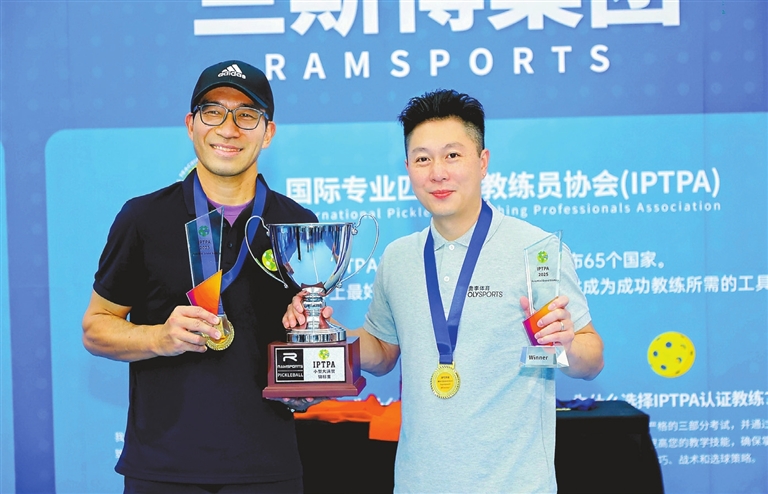
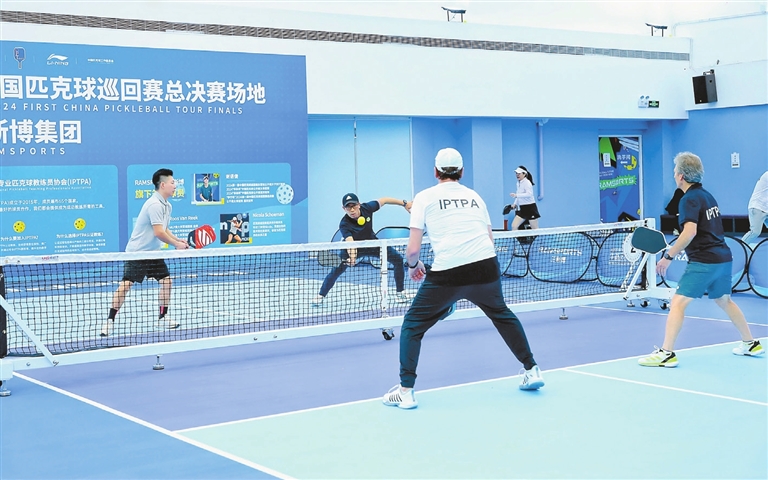
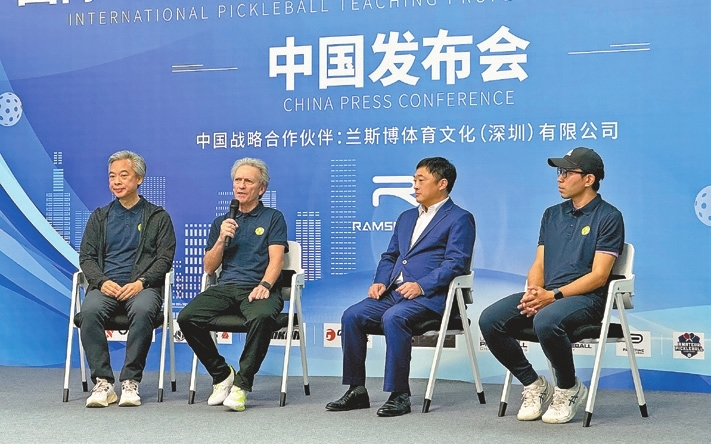
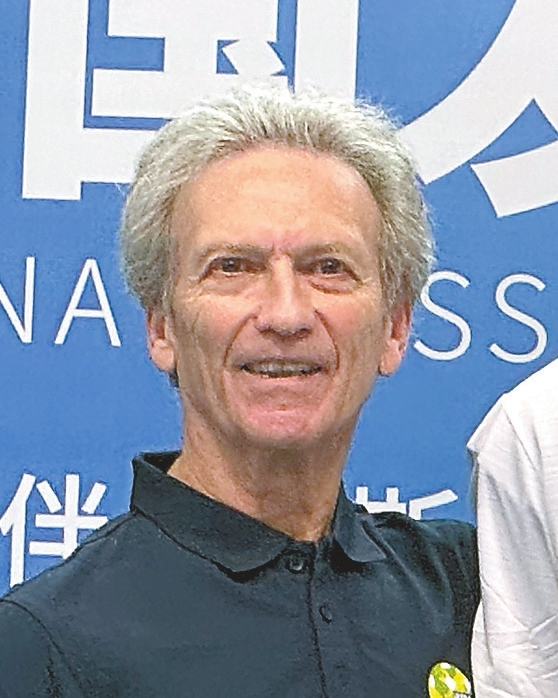
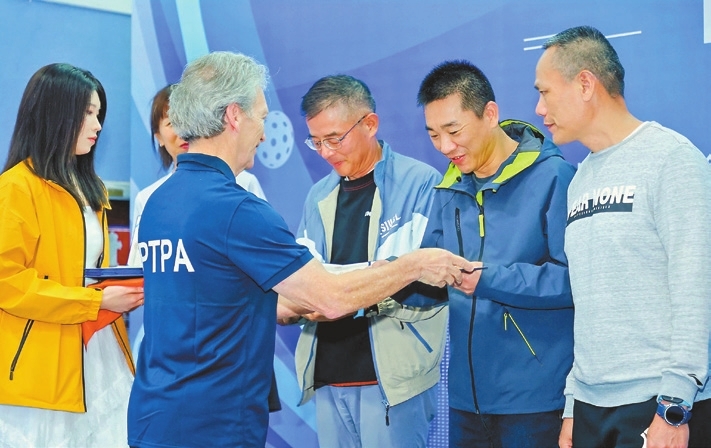
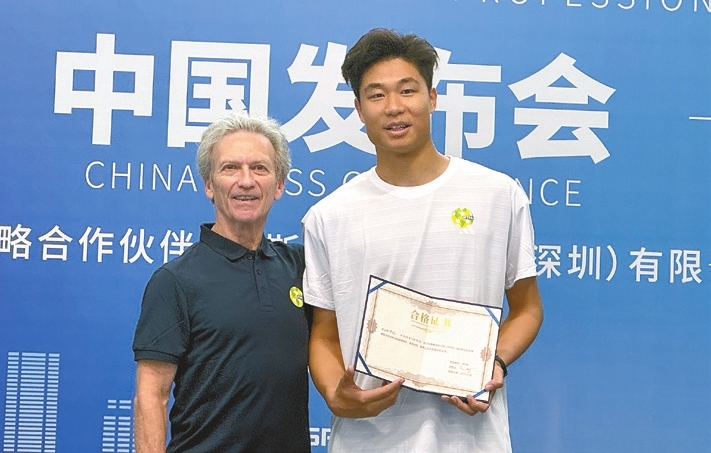
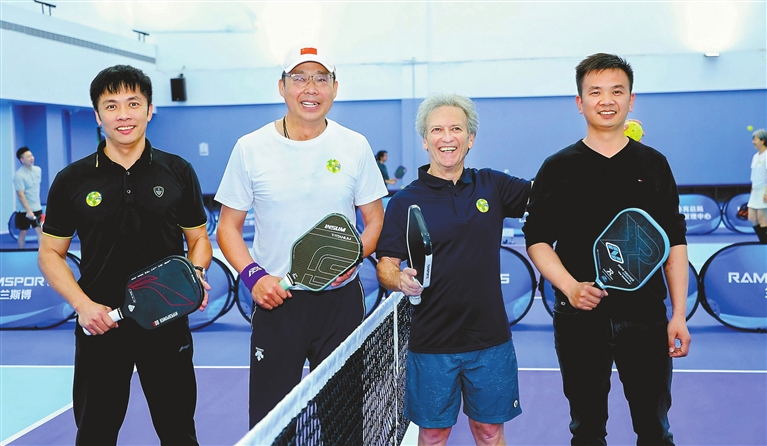
Windy Shao windysjf@hotmail.com SEYMOUR RIFKIND, the founder and president of the International Pickleball Teaching Professional Association (IPTPA) and the World Pickleball Federation (WPF), mentioned that pickleball is still in its early stages in Shenzhen during a news conference Wednesday, where he announced IPTPA’s introduction into China. Having visited the city six times since 2017, he described Shenzhen as a fast-paced city and expressed his vision for the sport’s growth potential, stating, “I am always envisioning pickleball and its future in a city like Shenzhen. Clearly, I think it’s still in its infancy, but it will continue to expand rapidly.” In discussing his plans for Shenzhen and China, Rifkind showed great enthusiasm for establishing a pickleball academy. The American entrepreneur outlined his exploration of various interested cities. He said the academy will feature 40 indoor courts and dormitories capable of accommodating 200 athletes and coaches. He also shared his vision to franchise facilities with multiple courts, targeting potential locations in cities such as Shenzhen, Guangzhou, Macao, and Hong Kong. Rifkind emphasized the importance of collaboration between governmental entities and the private sector to enhance pickleball infrastructure. “We are eager to offer our expertise to contribute to the global growth of pickleball,” he stated. Rifkind founded the IPTPA in 2015 and the WPF in 2018. He has spearheaded efforts to showcase pickleball at the World Maccabi Games in Israel, an IOC-sanctioned event, and at the Asian Games in China in 2023, another IOC-sanctioned event. Rifkind shared, “It was nationally televised in China. We had close to 5 million people tune in within the first half-hour. That was the largest single event ever in the sport of pickleball. And at that time, pickleball was still relatively new in China.” “We also conducted a major exhibition at the Water Cube in Beijing in 2019 and invited 200 government officials. It was at that event where I think a number of the government officials recognized that pickleball is an incredibly popular sport,” he mentioned. “What I shared with the government officials in China was that I knew that over the past five or six Olympics, more than 50% of badminton and table tennis Olympic medals went to China. I am confident that when we do get into the Olympic Games, China has a chance to win the first medals,” he added, noting that no country is in a better position than China to succeed in racket sports. Discussing the potential inclusion of pickleball in the Olympic Games, Rifkind expressed optimism about its acceptance as early as 2028. “I can’t say it will definitely happen, but I can tell you that the International Olympic Committee (IOC) likes pickleball very much,” he said Highlighting the sport’s appeal to a broad demographic and its cost-effective nature, he added, “Some of the other sports that attract young people, once they age, they outgrow the sport. But people can play pickleball well into their 80s.” “When you consider all the criteria the IOC considers when introducing a new sport, pickleball fits for all those reasons along with the sport’s popularity itself,” he affirmed. Rifkind, 74, has visited over 40 countries and regions certifying teachers to teach pickleball. IPTPA has instructors in 65 countries and regions worldwide. “Once you have facilities, member countries tell us that the most important thing then is that they have qualified teachers. We are very concerned about the safety of our sport. We provide quality instruction focusing on safety first.” With a background in athletics and having been a full scholarship gymnast who won medals in world competitions, Rifkind has coached over 40 All-American high school gymnasts and worked with five Olympians and two Olympic Champions. “My background in gymnastics gave me the work ethic, integrity, and drive that are essential for success, not only as a gymnast but also as a coach. I have endeavored to bring those characteristics and apply them to pickleball because a good coach is a good coach, regardless of the sport,” he told Shenzhen Daily. He believes the key lies in learning the intricacies and unique skills of the new sport and in studying, preparing, and genuinely caring for the students’ best interests. “If you always put your students first and you work hard — keep up with the changes that the sport undergoes while still maintaining the qualities of great teaching — you will be successful,” he said. | 
